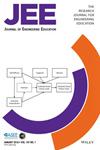Crating the self: The interplay of agency, entrepreneurial mindset, and narrative identity
Abstract
Background
Despite the well-established positive effects of storytelling, narrative modes of thinking have neither been systematically assessed nor widely implemented in engineering education.
Purpose
Recently, the idea of story-driven learning (SDL) as pedagogy has been applied in an engineering department at a public university. Our research question was: “How are students, as a result of story-driven learning, changing in regard to both their self-reported (1) entrepreneurial mindset, self-concept clarity, and sense of narrative identity and (2) the ways in which they tell the stories of their lives?”
Design
We collected data from 60 students and compared the results from (1) students currently enrolled in “The Art of Telling Your Story” course and (2) students who had never taken the course. At the beginning and end of the semester, students completed self-report measures (i.e., self-concept clarity, awareness of narrative identity, entrepreneurial mindset) and two narrative prompts. The stories were then coded for six narrative themes: entrepreneurial mindset, redemption, contamination, agency, self-concept clarity, autobiographical reasoning.
Results
Students in the class experienced an increase in agency and entrepreneurial mindset. Moreover, when directly compared with students not in the course, students in the course experienced an increase in autobiographical reasoning, awareness of narrative identity, and maintained their increase in entrepreneurial mindset.
Conclusions
These results showcase the potency of storytelling interventions, as well as highlighting—for the first time—their potential for influencing the development of entrepreneurially minded engineers.

 求助内容:
求助内容: 应助结果提醒方式:
应助结果提醒方式:


